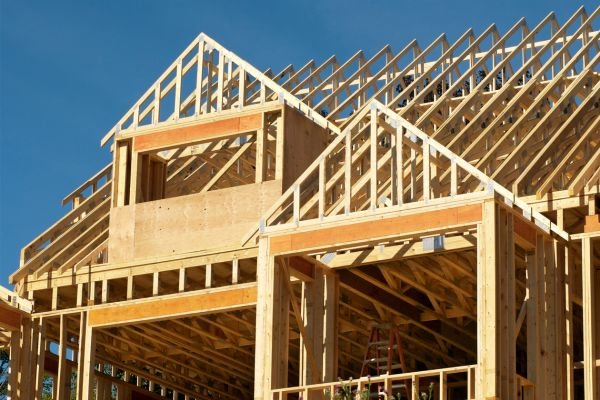Introduction to Ground Up Construction Loans
Ground up commercial construction loans are specialized financing options tailored for developers undertaking new construction projects for properties, such as townhomes. This type of loan specifically covers the costs associated with building a structure from the ground up, including purchasing land, labor, materials, and other related expenses. Unlike traditional mortgages or renovation loans, ground-up commercial construction loans typically have short terms and disburse in stages as construction progresses, following the draw schedules established between the lender and the borrower.
For developers eyeing the townhome market, these loans are particularly vital. Townhomes, characterized by their unique architectural style that often includes multiple units sharing walls, necessitate sizable financial investments upfront. As such, having access to ground up commercial construction loans can ensure that developers can meet their project timelines and mortgage schedules without undue financial strain. Without proper funding, the construction process may delay or even halt, increasing overall costs and causing missed opportunities in the competitive real estate market.
Understanding the specifics of ground-up commercial construction loans is crucial for anyone involved in developing townhomes. This encompasses not only the terms and conditions, such as interest rates and repayment schedules, but also the documentation required to secure financing and the timeline for fund disbursement. By grasping these elements, developers can make informed decisions that will enhance the likelihood of their project’s success while mitigating the risks associated with construction and financing. In the following sections, we will explore the unique features, benefits, and potential challenges associated with these loans.
The Benefits of Ground Up Construction Loans
Ground up commercial construction loans for townhomes offer numerous advantages that make them an appealing financing option for developers and builders. One of the primary benefits is the ability to access tailored financing solutions that cater specifically to the unique needs of new construction projects. Unlike traditional financing methods, ground up loans provide flexibility in terms of loan amounts and repayment schedules. This means that developers can secure the necessary funds to cover extensive building costs without compromising the overall project budget.
An essential aspect of these loans is their support for project cash flow. During the construction phase, there are various expenses that must be managed, from labor costs to materials procurement. Ground up commercial construction loans for townhomes ensure that developers have adequate working capital readily available, which minimizes delays and keeps projects on schedule. This financial support is crucial in helping them address unexpected expenses or fluctuations in cash flow, enhancing the overall efficiency of the building process.
Additionally, ground up loans often come with the potential for competitive interest rates. Since these loans are specifically designed for construction purposes, lenders tend to offer more favorable rates compared to standard commercial loans. This can lead to significant savings in interest payments over the life of the loan, allowing developers to allocate resources more effectively within their projects.
Moreover, these loans can help manage the financial risks associated with new projects. Given that construction undertakings can be unpredictable, having a financing option that accommodates contingencies can provide vital reassurance to developers. By minimizing uncertainty through strategic funding, ground up commercial construction loans for townhomes play a pivotal role in enabling successful project completion and overall profitability.
Eligibility Requirements for Borrowers
When considering ground up commercial construction loans for townhomes, borrowers must meet specific eligibility criteria established by lenders. Understanding these requirements is crucial to ensure a smooth and successful funding process.
One of the primary factors lenders assess is the borrower’s credit score. Generally, a credit score of at least 680 is preferred by most lenders; however, some may accept lower scores under certain conditions. A higher credit score indicates a stronger financial responsibility and a lower risk for the lender, thus enhancing the chances of receiving favorable loan terms. Borrowers with low credit ratings may need to explore options such as securing a co-signer or providing a larger down payment.
Down payment requirements can also vary significantly among lenders. Typically, borrowers should be prepared to provide a down payment of 20% to 30% of the total project cost. A higher down payment may mitigate the lender’s risk and potentially qualify the borrower for better rates or terms. It is essential to understand that this upfront investment serves as a demonstration of the borrower’s commitment to the project.
Experience in property development is another critical criterion that lenders analyze. Prior successful projects can instill confidence in lenders regarding the borrower’s ability to manage the construction process effectively. As a result, borrowers with a proven record in commercial or residential development may find it easier to secure financing.
Finally, proper financial documentation is a key requirement for obtaining ground up commercial construction loans for townhomes. This documentation usually includes tax returns, bank statements, and a detailed project budget. Lenders require these documents to evaluate the financial health of the borrower and assess the viability of the proposed project.
Meeting these eligibility criteria is essential for those looking to engage in ground up commercial construction projects, particularly for townhomes.
Loan Structure and Terms
Ground up commercial construction loans for townhomes are designed to facilitate the financing of new construction projects. These loans typically have a unique structure that differentiates them from conventional mortgages. When embarking on such a project, it is vital to understand the key components of the loan structure and terms associated with these specialized financing options.
Ground up commercial construction loans
The loan amounts for ground up commercial construction loans can vary significantly based on factors such as the project’s scope, location, and overall budget. Lenders generally evaluate the viability of the project meticulously, often relying on a comprehensive appraisal that assesses the estimated value of the completed townhomes. This process helps determine how much funding a developer can secure, as lenders aim to mitigate risk by ensuring that the loan amount aligns with the projected value of the finished development.
Interest rates on these loans can be variable or fixed, depending on the lender and the prevailing financial conditions. Typically, rates may be higher than traditional mortgage rates given the increased risk associated with construction financing. The repayment schedules are structured to accommodate the construction timeline, meaning repayments may not begin until construction is complete. The duration of these loans is generally short-term, often ranging from 12 to 36 months, depending on the project’s scale.
Moreover, one of the distinctive characteristics of ground up commercial construction loans is the draw system for fund disbursement. Rather than receiving the total loan amount upfront, the lender releases funds in stages, known as draws. This approach ensures that the borrower uses the money as intended for various phases of construction. Developers typically submit a draw request upon the completion of specific milestones, which are then verified by the lender. This structured draw system helps manage cash flow effectively throughout the project lifecycle, ensuring that financial resources align closely with construction progress.
The Application Process for Ground Up Commercial Construction Loans
The application process for ground up commercial construction loans for townhomes can be intricate and requires careful preparation. To initiate the application, potential borrowers must gather various documents that demonstrate their financial capabilities and project feasibility. Common documentation includes personal and business tax returns, financial statements, credit reports, project plans, and construction budget outlines. This information helps lenders assess the applicant’s creditworthiness and the viability of the construction project.
When presenting a loan application, it is essential to provide a comprehensive and well-organized proposal. Clear communication of the project’s goal, projected costs, and anticipated returns on investment is vital. Including photographs or blueprints of the townhome project can also enhance the presentation and make the application more appealing. Additionally, having a seasoned team of architects and contractors is beneficial, as lenders may view experienced professionals intertwined with the project favorably, thereby increasing the chances of loan approval.
The timeframe from submission to loan approval can vary significantly depending on the lender’s requirements and the complexity of the project. Generally, borrowers can expect anywhere from a few weeks to several months for processing. During this period, lenders may require additional information, and applicants should be prepared for further inquiries. Common challenges include unexpected changes in project scope, delays in gathering documentation, and difficulties in establishing a strong credit profile. Addressing these issues proactively can streamline the application process and improve the likelihood of securing ground up commercial construction loans for townhomes.
Choosing the Right Lender
When embarking on a project that requires ground up commercial construction loans for townhomes, selecting an appropriate lender is a critical step. The right lender can make a significant difference in the success of your financing efforts, and several factors should be carefully considered when making this choice.
First, assess the lender’s reputation in the market. It is crucial to research potential lenders, looking for testimonials and reviews from other clients, particularly those involved in similar construction projects. A well-regarded lender typically demonstrates reliability and a history of successful transactions, which can significantly alleviate concerns regarding your financing arrangement.
Interest rates are another vital component to evaluate. Different lenders may offer varying rates for ground up commercial construction loans, so it is wise to shop around and compare options. Be sure to read the fine print, considering any additional fees and terms that may affect the overall cost of the loan. This diligence can help you identify the most favorable financing arrangement for your project.
It is also essential to consider the range of services offered by the lender. Some institutions specialize in construction financing and provide additional services such as project management or guidance on budget planning. Whether you are looking for support throughout the entire construction process or a simple loan agreement, understanding the full scope of services can help you choose a lender that meets your needs.
Lastly, inquire about the lender’s expertise in construction financing. It is beneficial to work with a lender that understands the nuances of ground up commercial construction and has experience in funding townhome projects. Asking specific questions about their past experience can help ensure that your chosen lender is not only knowledgeable but also right for your project.
Key Considerations in Project Planning
When embarking on townhome development, it is crucial for developers to consider a range of factors that can significantly impact the success of their projects and their ability to secure ground up commercial construction loans for townhomes. One of the primary considerations should be budgeting for construction costs. Accurately estimating the cost of materials, labor, permits, and contingencies is essential. An underestimation can lead to budget overruns and may jeopardize financing agreements.
In addition to financial planning, developers must ensure compliance with local zoning laws. Each municipality has its own regulations regarding land use, building heights, density, and other aspects that dictate how properties can be developed. Engaging with local planning departments early on can help clarify these requirements and avoid potential legal challenges that could delay construction and affect loan eligibility.
Another critical factor is establishing anticipated timelines for the development project. Understanding the phases of construction, from acquiring permits to completing inspections, can ensure milestones are met and reduce the risk of financing delays. A comprehensive timeline also aids in aligning cash flow with construction expenditures and managing ground up commercial construction loans for townhomes effectively. It allows developers to forecast how project delays might affect loan repayment and overall financial health.
Equally important is crafting a detailed business plan that outlines the vision for the development. This plan should not only include financial projections but also a marketing strategy, anticipated challenges, and mitigation plans. A well-thought-out business plan serves as a foundation for attracting investors and securing ground up commercial construction loans for townhomes. Overall, by carefully considering these aspects, developers can set up their projects for success and ensure their financing aligns with their goals.
Common Mistakes to Avoid
When embarking on the journey of securing ground up commercial construction loans for townhomes, developers often encounter pitfalls that can jeopardize their project from the very beginning. One prevalent mistake is underestimating project costs. It is critical that developers conduct thorough market research and budgeting to accurately predict expenses related to materials, labor, permits, and contingencies. Failing to account for these factors can lead to financial shortfalls, resulting in project delays or even abandonment. A well-prepared financial plan with realistic cost estimates helps developers handle any unforeseen expenses that may arise during construction.
Another common error is neglecting to secure pre-approval from lenders before starting the construction process. Pre-approval provides a clearer picture of the financing options available and defines budget limits for the project. Without this preparatory step, developers may find themselves struggling to adapt mid-project, leading to issues with cash flow and resource allocation. Engaging in discussions with lenders early in the process allows developers to understand their options, tailor their financing requests, and streamline the funding phase of their construction projects.
Moreover, ineffective communication with lenders can further derail progress. Developers should maintain open lines of communication with their lending partners throughout the financing process. This includes providing timely updates on project status, issues encountered, and any alterations to the original plan. Transparent communication fosters trust, helps to build stronger relationships, and ensures that lenders remain informed about the project’s progress. Developers must prioritize clarity in their interactions and prepare to negotiate terms to secure the most favorable loan conditions.
By recognizing and avoiding these common mistakes, developers can enhance their chances of securing ground up commercial construction loans for townhomes and navigate their projects towards successful completion.
Conclusion and Next Steps
In the realm of townhome development, comprehending ground up commercial construction loans is essential for prospective developers and investors. These financial instruments allow for the funding of construction projects from their inception, catering specifically to the needs of multi-family developments like townhomes. Potential borrowers must understand the intricate process of securing these loans, which covers everything from project planning to navigating the myriad of financial requirements.
Throughout this discussion, we have highlighted the importance of laying a solid foundation for your project, emphasizing the necessity of meticulous financial planning and understanding loan terms. By engaging with various lending institutions and understanding their requirements, developers can position themselves to acquire favorable loan terms. Additionally, collaborating with experienced financial advisors can provide valuable insights into the nuances of these construction loans, ensuring a smoother transitional process as you embark on your townhome project.
For those considering a ground up commercial construction loan for townhomes, the next steps include conducting thorough research on different lenders and their offerings, as well as familiarizing yourself with the financial qualifications needed to successfully secure funding. It’s also advisable to assess potential project locations and their respective market demands, as this context will greatly influence the success of your development. Taking the initiative to gather all pertinent information and seeking professional advice can significantly enhance your prospects in the competitive market of townhome construction.
Ultimately, the landscape of townhome development is ripe with potential for those who are prepared and informed. By equipping yourself with the knowledge of ground up commercial construction loans, you position your project for a successful start. Reaching out to experienced professionals and continuing to educate yourself about the financing options available will be key to navigating the complexities of this journey.




